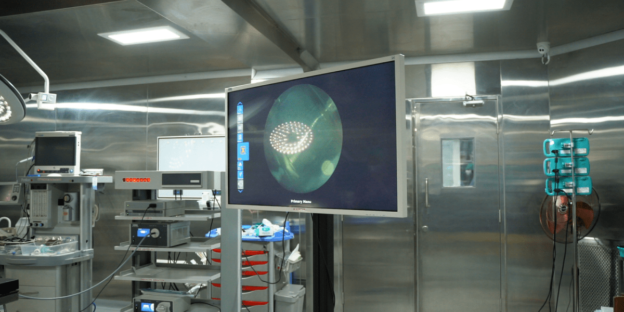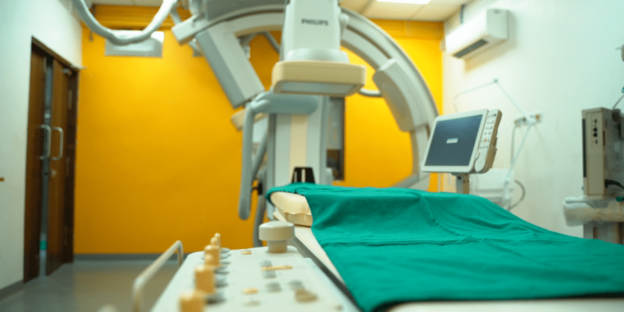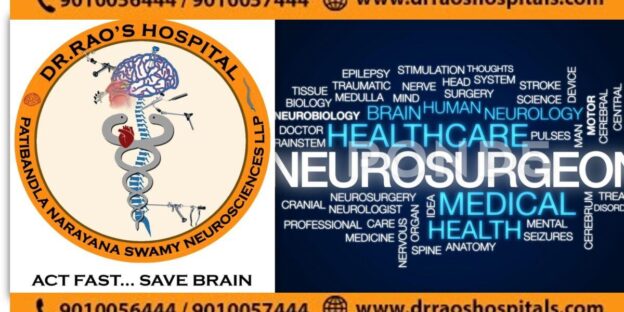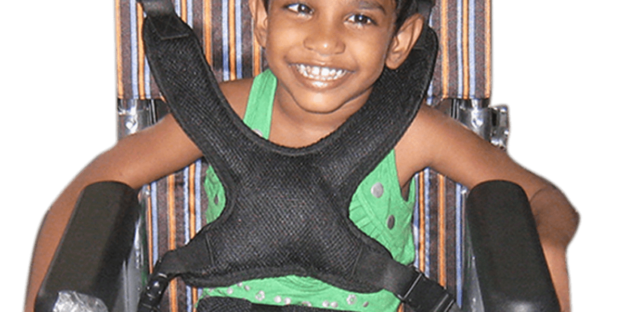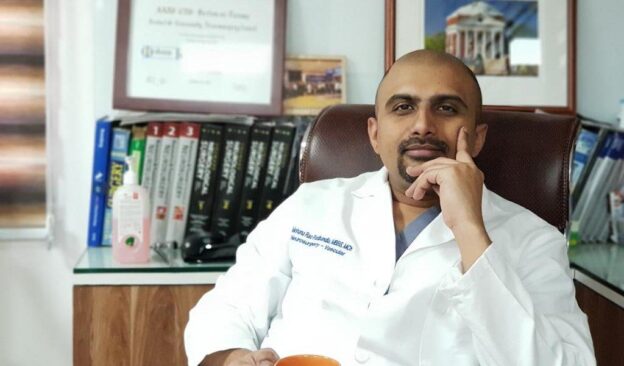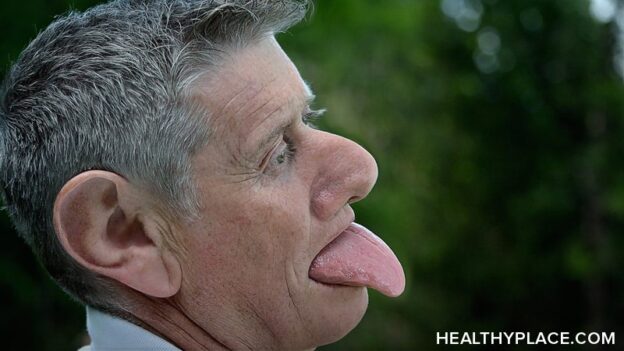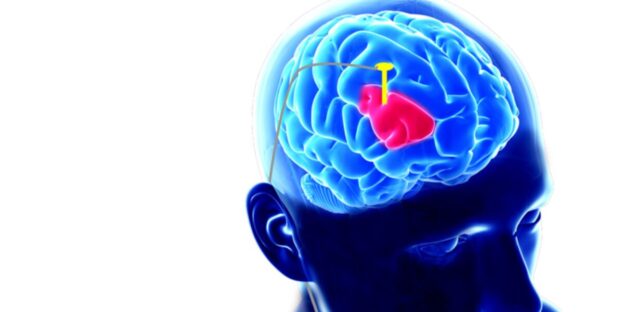Dr. Rao is one of the top 10 best neurosurgeons and Spine Surgeons in India
Dr. Rao is one of the best neurosurgeons and spine surgeons in India.
Dr. Rao has been practicing for over 20 years and has performed countless surgeries. He is highly skilled and has an excellent bedside manner. He is also one of the top 10 neurosurgeons and spine surgeons in India. Dr. Rao is not only an excellent neurosurgeon, but he is also an expert in spine surgery. He has helped many people with back problems and has even been featured on television for his work. He is genuinely one of the best in his field. As reported by ahmedabadmirror
Dr. Rao is the best neurosurgeon in India.
Dr. Mohana Rao Patibandla is a renowned neurosurgeon in Guntur, Andhra Pradesh. He founded Dr. Rao’s Hospital, the first independent state-of-the-art facility in Andhra Pradesh and India for the best brain, spine, and nerve care. He has over 20 years of experience and has performed over 10,000 surgeries for various neurological conditions. He also receives many prestigious awards, such as the Brain LAB Neurosurgery Award by the Congress of Neurological Surgeons, USA, and India’s Top Neurosurgeon of the Year by 9ine Planets Research and Media.
Some of the reasons why he is considered the best neurosurgeon in India are:
There are many reasons why Dr. Rao is the best neurosurgeon in India.
First, he is highly skilled and has a lot of experience. He has performed countless surgeries and has helped many people. He is also very knowledgeable about the latest neurosurgery advancements and is always up-to-date on the latest techniques.
Another reason why Dr. Rao is the best neurosurgeon in India is because of his bedside manner. He is compassionate and caring and always puts his patients first. He takes the time to listen to his patients and to understand their needs. He is also very patient with his patients and takes the time to explain things to them.
Finally, Dr. Rao is also one of the top 10 neurosurgeons in India. This is because his peers highly respect him, and is well-known for his work. He has been featured on television and in magazines and is often invited to speak at conferences.
Dr. Rao is the best spine surgeon.
Dr. Rao is the best neurosurgeon in India and the best spine surgeon in Guntur. He has helped many people with back problems and has even been featured on television for his work. He is genuinely one of the best in his field.
There are many reasons why Dr. Rao is the best spine surgeon in Guntur. First, he is highly skilled and has a lot of experience. He has performed countless surgeries and has helped many people. He is also very knowledgeable about the latest advancements in spine surgery and is always up-to-date on the latest techniques.
Another reason why Dr. Rao is the best spine surgeon in Guntur is because of his bedside manner. He is compassionate and caring and always puts his patients first. He takes the time to listen to his patients and understand their needs. He is also very patient with his patients and takes the time to explain things to them.
Finally, Dr. Rao is also one of the top 10 neurosurgeons in India. This is because his peers highly respect him and is well-known for his work. He has been featured on television and in magazines and he is often invited to speak at conferences.
Dr. Mohana Rao Patibandla is a true pioneer and leader in the field of neurosurgery in India. He has dedicated his life to sharing his healing touch with the people and improving their quality of life. He inspires many aspiring neurosurgeons and is a role model for his peers.
Best Brain Cancer Hospitals in India
Discover unparalleled expertise in the treatment of brain cancer at Dr. Rao’s Hospital. Our multidisciplinary approach and advanced therapies make us a top choice for patients seeking the best care for brain cancer.
Best Brain Tumor Hospitals in India
Navigating the complexities of brain tumors requires specialized knowledge and skill. As one of the best brain tumor hospitals in India, we offer advanced diagnostics and personalized treatment plans to address each patient’s unique needs
Best Doctor for Spine Surgery in India
Trust in the hands of experienced professionals when it comes to spine surgery. Dr. Mohana Rao Patibandla, recognized as the best doctor for spine surgery in India, leads a team committed to restoring spinal health and enhancing overall well-being.
Best Hospital for Spine Surgery in India
Experience unparalleled care at the best hospital for spine surgery in India. Our comprehensive approach, coupled with state-of-the-art technology, ensures optimal outcomes for patients seeking relief from spinal conditions
Best Hospitals in India for Brain Cancer
As a leader in neurosurgical care, we consistently rank among the best hospitals in India for brain cancer. Our commitment to innovation and patient-centric care sets us apart in the realm of neuro-oncology.
Best Neuro Surgeon in India
Dr. Mohana Rao Patibandla, renowned as the best neurosurgeon in India, brings a wealth of experience and expertise to each case. Trust in his skill for intricate neurosurgical procedures that demand precision and proficiency.
Best Neurology Hospitals
For comprehensive neurological care, choose Dr. Rao’s Hospital, counted among the best neurology hospitals in the country. Our team of neurologists is dedicated to addressing a spectrum of neurological disorders with advanced diagnostic and treatment modalities.
Best Neurosurgeon in Guntur
In the heart of Guntur, Dr. Rao’s Hospital takes pride in having the best neurosurgeon in the region. Dr. Mohana Rao Patibandla’s commitment to patient well-being and surgical excellence makes us the preferred choice for neurosurgical interventions
Best Neurosurgeon in India
For complex neurosurgical procedures, trust in the expertise of the best neurosurgeon in India, Dr. Mohana Rao Patibandla. Our hospital is a testament to his dedication to advancing neurosurgical care in the country.
Best Neurosurgeons in India
At Dr. Rao’s Hospital, our team comprises some of the best neurosurgeons in India. Together, we strive for excellence in patient care, ensuring positive outcomes and improved quality of life.
Unmatched Expertise
Best Spine Doctor in India
Renowned as the best spine doctor in India, Dr. Patibandla brings unparalleled expertise to spinal care. His dedication to precision and patient well-being sets the standard for spinal healthcare in the country.
Best Spine Doctor India
Trust in the hands of the best spine doctor in India at Dr. Rao’s Hospital. Our commitment to comprehensive spinal care ensures optimal outcomes for patients seeking top-notch expertise.
Best Spine Fusion Hospitals in India
Discover excellence in spine fusion procedures at Dr. Rao’s Hospital, counted among the best spine fusion hospitals in India. Our state-of-the-art facility and skilled professionals ensure successful outcomes.
Best Spine Hospitals in Guntur
Experience top-notch spinal care at one of the best spine hospitals in Guntur. Dr. Rao’s Hospital is synonymous with excellence, providing comprehensive solutions for various spinal conditions.
Best Spine Specialist Doctor in India
For specialized spinal care, choose Dr. Rao’s Hospital, home to the best spine specialist doctor in India. Our team is dedicated to addressing a spectrum of spinal disorders with advanced diagnostic and treatment modalities.
Best Spine Surgeon in Andhra Pradesh
Dr. Patibandla stands as the best spine surgeon in Andhra Pradesh, leading a team committed to restoring spinal health and enhancing overall well-being.
Best Spine Surgeon in India
Recognized nationally as the best spine surgeon in India, Dr. Patibandla’s surgical prowess and patient-centric approach make Dr. Rao’s Hospital the preferred choice for spine surgery.
Best Spine Surgeons in India
Our team at Dr. Rao’s Hospital comprises some of the best spine surgeons in India. Together, we strive for excellence in patient care, ensuring positive outcomes and improved quality of life.
Best Spine Surgery Doctor in India
Experience excellence in spinal surgery with Dr. Patibandla, acknowledged as the best spine surgery doctor in India. Our commitment to surgical precision and patient comfort sets us apart.
Best Spine Surgery Doctors in India
Choose Dr. Rao’s Hospital for a team of leading experts, recognized as the best spine surgery doctors in India. Our collaborative approach ensures comprehensive and personalized care for each patient.
Best Spine Surgery Hospitals in Guntur
For state-of-the-art spine surgery, Dr. Rao’s Hospital stands as one of the best spine surgery hospitals in Guntur. Our commitment to excellence ensures optimal outcomes for patients seeking relief from spinal conditions.
Best Spine Surgery Hospitals in India
Ranked among the best spine surgery hospitals in India, Dr. Rao’s Hospital is synonymous with cutting-edge technology and compassionate care. Trust us for successful spine surgeries and improved quality of life.
Best Spine Surgery in Andhra Pradesh
Dr. Rao’s Hospital is at the forefront of providing the best spine surgery in Andhra Pradesh. Our comprehensive approach and skilled professionals ensure successful outcomes for patients with diverse spinal conditions.
Best Spine Surgery in Guntur
Experience top-notch spine surgery in Guntur at Dr. Rao’s Hospital. Our dedication to surgical excellence and patient-centric care makes us the preferred choice for spinal interventions.
Best Spine Tumor Removal Hospitals in India
For specialized care in spine tumor removal, choose Dr. Rao’s Hospital among the best spine tumor removal hospitals in India. Our expertise ensures successful outcomes for patients with spinal tumors.
Brain Tumor
Discover advanced and compassionate care for brain tumors at Dr. Rao’s Hospital. Our multidisciplinary team, led by Dr. Patibandla, employs cutting-edge techniques to diagnose and treat various types of brain tumors with precision and expertise.
Deep Brain Stimulation
Explore the benefits of deep brain stimulation at Dr. Rao’s Hospital. Our neurosurgical team specializes in this innovative therapy, offering relief for conditions such as Parkinson’s disease and essential tremors.
Famous Neurosurgeon in India
Dr. Mohana Rao Patibandla, recognized as a famous neurosurgeon in India, leads a team of experts dedicated to advancing the field of neurosurgery. Trust in our renowned expertise for exceptional care.
Medical Tourism
Embrace medical tourism at its finest at Dr. Rao’s Hospital. Patients from around the world choose us for our world-class facilities, renowned medical professionals, and personalized care.
Minimally Invasive Spine Surgery
Experience the benefits of minimally invasive spine surgery at Dr. Rao’s Hospital. Our commitment to innovation ensures quicker recovery and reduced discomfort for patients seeking advanced spine care.
Neurosurgeon in India
Choose Dr. Rao’s Hospital for the expertise of a distinguished neurosurgeon in India. Dr. Patibandla’s commitment to surgical excellence and patient well-being makes us a preferred destination for neurosurgical interventions.
Neurosurgery
Explore the vast realm of neurosurgery at Dr. Rao’s Hospital. Our comprehensive neurosurgical services cover a spectrum of conditions, from intricate brain surgeries to spinal interventions.
Radiation Therapy
For advanced radiation therapy, trust Dr. Rao’s Hospital. Our team utilizes state-of-the-art technology to deliver precise and effective radiation treatments for various neurological conditions.
Spine Doctor India, Spine Specialist in India
Dr. Mohana Rao Patibandla, the foremost spine doctor in India, leads our team of specialists. Trust in our expertise for accurate diagnoses and personalized treatment plans for spine-related conditions.
Spine Surgeon in India, Spine Surgeons in India
As the best spine surgeon in India, Dr. Patibandla ensures optimal outcomes for patients seeking spinal interventions. Our team comprises some of the best spine surgeons in India, dedicated to surgical excellence.
Spine Surgery in India, Spine Surgery India
Experience world-class spine surgery at Dr. Rao’s Hospital. Our commitment to surgical precision, coupled with cutting-edge technology, makes us a trusted destination for spinal procedures in India.
Spine Surgery Treatment in India, Spine Treatment in India
Dr. Rao’s Hospital offers comprehensive spine surgery treatment in India. From diagnosis to rehabilitation, our team provides personalized care for various spinal conditions, ensuring a smooth treatment journey.
Spine Tumor Removal Hospitals in India
Choose Dr. Rao’s Hospital among the top spine tumor removal hospitals in India. Our specialists use advanced techniques, including stereotactic radiosurgery, for successful spine tumor removal.
Stereotactic Radiosurgery
Experience precision in treatment with stereotactic radiosurgery at Dr. Rao’s Hospital. Our advanced technology ensures targeted therapy for various neurological conditions.
Top 10 Spine Surgeons in India
Dr. Patibandla is honored as one of the top 10 spine surgeons in India, showcasing our commitment to excellence in spinal surgery. Our skilled team ensures optimal outcomes for patients seeking top-tier spine care.
Top Spine Specialist in India
Trust in the expertise of Dr. Patibandla, recognized as a top spine specialist in India. Our comprehensive approach and advanced treatments make Dr. Rao’s Hospital a preferred destination for spinal interventions.
Top Spine Surgeon in India, Top Spine Surgeons in India
Experience the pinnacle of spine surgery with Dr. Patibandla, acknowledged as a top spine surgeon in India. Our team, comprising some of the top spine surgeons in the country, ensures unmatched surgical precision.
Specialized Expertise
Best Back Surgery Doctors
Discover excellence in back surgery at Dr. Rao’s Hospital. Our team of specialists, including some of the best back surgery doctors, is dedicated to addressing a spectrum of back-related issues with precision and expertise.
Best Hospital for Back Problems
For comprehensive care of back problems, choose Dr. Rao’s Hospital as the best hospital. Our multidisciplinary approach ensures thorough diagnostics and personalized treatment plans for optimal outcomes.
Best Keyhole Surgeon, Best keyhole brain surgeon, best keyhole spine surgeon
Experience advanced keyhole surgery with Dr. Patibandla, acknowledged as the best keyhole surgeon. Our minimally invasive approaches ensure faster recovery and reduced discomfort for patients.
Best Minimally Invasive Neurosurgeon in India
Dr. Patibandla’s expertise extends to being recognized as the best minimally invasive neurosurgeon in India. Trust in our commitment to innovative and minimally invasive approaches for neurological conditions.
Best Minimally Invasive Spine Surgeon in India
Discover the benefits of minimally invasive spine surgery with Dr. Patibandla, known as the best minimally invasive spine surgeon in India. Our techniques prioritize patient comfort and faster recovery.
Best Neuro Specialist Doctor in India
For specialized neurological care, trust Dr. Rao’s Hospital and the expertise of the best neuro specialist doctor in India. Our team ensures accurate diagnosis and personalized treatment plans.
Best Neuro Surgeon in Vijayawada
Dr. Patibandla’s expertise reaches beyond Guntur, making him the best neuro surgeon in Vijayawada. Choose us for top-notch neurosurgical care in the region.
Best Neurologist Doctors in Guntur, Best Neurologist in Andhra Pradesh
Our team includes the best neurologist doctors in Guntur, making us a trusted destination for neurological care. Dr. Patibandla’s expertise extends to being recognized as the best neurologist in Andhra Pradesh.
Excellence in Neurology
Best Neurology Hospital in Guntur, Best Neurology Hospitals
Dr. Rao’s Hospital stands as the best neurology hospital in Guntur, and one of the best neurology hospitals in India. Our commitment to neurological excellence ensures optimal outcomes for our patients.
Unmatched Neurosurgical Care
Best Neurosurgeon in Guntur
Experience world-class neurosurgical care with Dr. Patibandla, acknowledged as the best neurosurgeon in Guntur. Our commitment to surgical precision and patient-centric care sets us apart.
Unmatched Expertise
Best Neurosurgeon in India
Experience unparalleled neurosurgical care with Dr. Patibandla, acknowledged as the best neurosurgeon in India. Our commitment to surgical precision and patient-centric care sets us apart as a leader in neurosurgery.
Best Neurosurgeon in South India
Dr. Patibandla’s expertise extends across South India, making him the best neurosurgeon in the region. Choose Dr. Rao’s Hospital for world-class neurosurgical interventions.
Specialized Spine Care
Best Spine Care Hospital in Guntur
Discover excellence in spine care at Dr. Rao’s Hospital, recognized as the best spine care hospital in Guntur. Our multidisciplinary team ensures comprehensive solutions for various spine-related conditions.
Best Spine Specialist Doctor in India
Trust in the hands of the best spine specialist doctor in India at Dr. Rao’s Hospital. Our team is dedicated to addressing a spectrum of spinal disorders with advanced diagnostic and treatment modalities.
Best Spine Specialist Doctors in Guntur
Our hospital boasts the best spine specialist doctors in Guntur, providing personalized and effective solutions for patients seeking top-notch spine care.
Best Spine Surgeon in Andhra Pradesh, Best Spine Surgeon in Guntur
Dr. Patibandla leads our team as the best spine surgeon in Andhra Pradesh and Guntur. Our commitment to surgical excellence ensures optimal outcomes for patients seeking relief from spinal conditions.
Best Spine Surgeon in India
Experience world-class spine surgery at Dr. Rao’s Hospital, home to the best spine surgeon in India. Our comprehensive approach and skilled professionals ensure successful outcomes.
Best Spine Surgery in Guntur
Dr. Rao’s Hospital stands as the preferred choice for the best spine surgery in Guntur. Our dedication to surgical excellence and patient-centric care makes us a leader in spinal interventions.
Expertise in Back Surgery and Neurology
Best Surgeons for Back Surgery
Choose Dr. Rao’s Hospital for the expertise of the best surgeons for back surgery. Our team ensures personalized treatment plans and optimal outcomes for patients with back-related issues.
Brain Specialist in Andhra Pradesh, Brain Specialist in Guntur
Dr. Patibandla’s expertise extends to being a brain specialist in Andhra Pradesh and Guntur. Trust in our advanced diagnostic and treatment modalities for neurological conditions.
Brain Tumor, Brain Tumor Best Treatment in India
Discover advanced care for brain tumors at Dr. Rao’s Hospital. Our multidisciplinary team ensures the best treatment options for patients facing brain tumors.
Convenient and Compassionate Care
Brain Tumor Hospital Near Me
Find convenience and excellence in brain tumor treatment with Dr. Rao’s Hospital, a brain tumor hospital near you. Our commitment to accessibility ensures prompt and compassionate care.
Specialized Neurosurgical Expertise
Endovascular Neurosurgeon in India
Dr. Patibandla is renowned as a leading endovascular neurosurgeon in India. Our hospital employs cutting-edge techniques for endovascular procedures, ensuring precise interventions for various neurological conditions.
Endovascular Neurosurgeon in Andhra Pradesh, Endovascular Neurosurgeon in Guntur
Experience specialized care with Dr. Patibandla, recognized as the top endovascular neurosurgeon in Andhra Pradesh and Guntur. Our commitment to innovative endovascular approaches sets us apart in neurological interventions.
Interventional Neurosurgeon in Guntur
Dr. Patibandla leads our team as a skilled interventional neurosurgeon in Guntur. We specialize in advanced interventional procedures for precise and effective treatment of neurological disorders.
Minimally Invasive Spine Surgery
Discover the benefits of minimally invasive spine surgery at Dr. Rao’s Hospital. Our skilled team ensures faster recovery and reduced discomfort for patients seeking advanced spine care.
Comprehensive Neurological Care
Neuro Physician in Andhra Pradesh, Neuro Physician in Guntur
Our hospital is home to experienced neuro physicians, providing comprehensive care for neurological conditions in Andhra Pradesh and Guntur. Dr. Patibandla’s expertise ensures accurate diagnoses and effective treatment plans.
Neuro Spinal Hospital Location, Neuro Surgeon in Vijayawada
Find us at the forefront of neuro spinal care with a strategic location. Dr. Patibandla is recognized as a leading neurosurgeon in Vijayawada, providing expertise in a convenient location.
Neurologist Doctor in Guntur
Trust in the expertise of our neurologist doctors in Guntur. Dr. Patibandla’s commitment to neurological excellence ensures optimal outcomes for patients with diverse neurological conditions.
Neurologist for Back Pain, Neurologist Specialist in Guntur
Our team includes specialists addressing various neurological issues, including back pain. Trust Dr. Patibandla’s expertise as a neurologist specialist in Guntur for personalized and effective care.
Neurology Appointment Near Me
Experience convenience with Dr. Rao’s Hospital offering neurology appointments near you. Our commitment to accessibility ensures prompt and compassionate care.
Neurology Doctors in Andhra Pradesh
Our team comprises skilled neurology doctors in Andhra Pradesh, providing advanced and comprehensive neurological care. Dr. Patibandla’s leadership ensures excellence in diagnostics and treatment.
Specialized Care Across Regions
Neurology Doctors in Vijayawada
Discover expert neurology care in Vijayawada with Dr. Patibandla’s team. Our neurology doctors bring advanced diagnostics and personalized treatment plans to the region.
Neurosurgeon Rajahmundry, Neurosurgeon Spine Surgeon
Experience specialized neurosurgical care in Rajahmundry with our esteemed team. Dr. Patibandla, a distinguished neurosurgeon and spine surgeon, leads the way in innovative treatments.
Neurosurgeon Vijayawada, Neurosurgery
Dr. Patibandla’s expertise extends to Vijayawada, making him the preferred neurosurgeon. Our neurosurgery services encompass a wide spectrum of advanced procedures.
Pediatric Neurological Expertise
Pediatric Neurologist Near Me
Find expert care for pediatric neurology near you. Dr. Patibandla’s team includes pediatric neurologists dedicated to the well-being of our youngest patients.
Spinal Neurosurgeon Near Me
Access specialized spinal neurosurgery near you with Dr. Rao’s Hospital. Our skilled team ensures precision and care in spinal procedures.
Spine Specialist Hospital
Dr. Rao’s Hospital is a recognized spine specialist hospital, providing comprehensive solutions for various spinal conditions. Our multidisciplinary team is committed to excellence in spine care.
Spine Surgeon Guntur, Spine surgeon near me
Dr. Patibandla, India’s best spine surgeon, leads our team in Guntur. Our commitment to surgical precision and patient-centric care sets us apart in spine surgery.
Advanced Neurosurgical Techniques
Stereotactic Radiosurgery
Experience precision in treatment with stereotactic radiosurgery at Dr. Rao’s Hospital. Our advanced technology ensures targeted therapy for various neurological conditions.
Top Brain Tumor Surgeons
Dr. Patibandla and his team are recognized as top brain tumor surgeons, offering advanced surgical interventions and personalized care for patients facing brain tumors.
Leading Neurological Expertise
Top Neurologist in Andhra Pradesh
Trust in the expertise of Dr. Patibandla’s team, including the top neurologist in Andhra Pradesh. Our neurology services cover a range of neurological conditions with advanced diagnostics and treatments.
Top Neurologist in Guntur
Dr. Patibandla, a leading neurosurgeon, ensures top-notch neurology care in Guntur. Our commitment to excellence makes us a preferred destination for neurological consultations.
Best Neurosurgeon in India
Dr. Patibandla is recognized as the best neurosurgeon in India, showcasing our commitment to surgical excellence and compassionate patient care.
Best Spine Surgeon in India
Experience world-class spine surgery with Dr. Patibandla, acknowledged as the best spine surgeon in India. Our hospital is at the forefront of innovative spine interventions.
Best Minimally Invasive Neurosurgeon in India
Trust in the expertise of Dr. Patibandla, acknowledged as the best minimally invasive neurosurgeon in India. Our commitment to advanced techniques ensures optimal outcomes with minimal disruption.
Best Minimally Invasive Spine Surgeon in India
Discover the benefits of minimally invasive spine surgery with Dr. Patibandla, known as the best minimally invasive spine surgeon in India. Our techniques prioritize patient comfort and faster recovery.
Advanced Treatment for Neurological Conditions
Brain Tumor Best Treatment in India
Choose Dr. Rao’s Hospital for the best treatment of brain tumors in India. Our multidisciplinary approach and cutting-edge technology ensure comprehensive and effective care.
Best Spine Specialist Doctor in India
Dr. Patibandla leads a team of specialists, making us the preferred destination for spine-related issues. Trust in the expertise of the best spine specialist doctor in India.
Best Neuro Specialist Doctor in India
For specialized neurological care, Dr. Patibandla is recognized as the best neuro specialist doctor in India. Our team ensures accurate diagnosis and personalized treatment plans.
Best Keyhole Surgeon
Experience advanced keyhole surgery with Dr. Patibandla, acknowledged as the best keyhole surgeon. Our minimally invasive approaches ensure faster recovery and reduced discomfort.
Comprehensive Spine and Neurological Care
Best Spine Care Hospital in Guntur
Dr. Rao’s Hospital is acknowledged as the best spine care hospital in Guntur, providing comprehensive solutions for various spinal conditions. Our multidisciplinary team is committed to excellence in spine care.
Best Neurology Hospital in Guntur
Trust Dr. Rao’s Hospital as the best neurology hospital in Guntur. Our commitment to neurological excellence ensures optimal outcomes for our patients.
Spine Surgeon Guntur
Dr. Patibandla, India’s best spine surgeon, leads our team in Guntur. Our dedication to surgical precision and patient-centric care sets us apart.
Best Neurosurgeon in South India
Dr. Patibandla is acknowledged as the best neurosurgeon in South India, showcasing our commitment to surgical excellence. Our hospital is a preferred destination for advanced neurosurgical interventions.
Best Neuro Surgeon in Vijayawada, Neuro Surgeon in Vijayawada
Dr. Patibandla’s expertise extends to Vijayawada, making him the best neuro surgeon in the region. Our commitment to surgical precision ensures optimal outcomes.
Neurosurgeon Spine Surgeon
Experience excellence in both neurosurgery and spine surgery with Dr. Patibandla, a distinguished neurosurgeon and spine surgeon. Our multidisciplinary team ensures comprehensive solutions.
Neurosurgeon Vijayawada
Choose Dr. Rao’s Hospital for expert neurosurgical care in Vijayawada. Dr. Patibandla’s leadership ensures a blend of advanced techniques and compassionate patient care.
Neurology Doctors in Vijayawada
Our skilled team of neurology doctors in Vijayawada ensures expert care for various neurological conditions. Trust Dr. Patibandla’s leadership for accurate diagnoses and effective treatment.
Neurosurgeon Rajahmundry
Access specialized neurosurgical care in Rajahmundry with our esteemed team. Dr. Patibandla’s commitment to innovative treatments ensures optimal outcomes for patients.
Top Brain Tumor Surgeons
Dr. Patibandla and his team are recognized as top brain tumor surgeons, offering advanced surgical interventions and personalized care for patients facing brain tumors.
Pediatric Neurologist Near Me
Discover expert care for pediatric neurology near you. Dr. Patibandla’s team includes pediatric neurologists dedicated to the well-being of our youngest patients.
Specialized Care for Back Pain and Spine Conditions
Neurologist for Back Pain
Find relief from back pain with our dedicated neurologists at Dr. Rao’s Hospital. We specialize in diagnosing and treating a range of conditions causing back pain.
Best Back Surgery Doctors
Choose Dr. Rao’s Hospital for the expertise of the best back surgery doctors. Our skilled surgeons are committed to providing optimal outcomes for patients requiring back surgery.
Spine Specialist Hospital
We take pride in being a recognized spine specialist hospital. Dr. Patibandla’s team is dedicated to comprehensive solutions for various spinal conditions.
Best Hospital for Back Problems
Trust in the expertise of Dr. Rao’s Hospital, recognized as the best hospital for back problems. Our multidisciplinary approach ensures accurate diagnoses and effective treatments.
Best Surgeons for Back Surgery
Experience precision and expertise with the best surgeons for back surgery at Dr. Rao’s Hospital. Our commitment to surgical excellence sets us apart.
Advanced Treatment for Neurological Conditions
Brain Tumor Hospital Near Me
Discover convenience and expertise with Dr. Rao’s Hospital, a leading brain tumor hospital near you. Our team specializes in advanced treatments for brain tumors.
Neuro Spinal Hospital Location
Find us strategically located at 12-19-67, Old Bank Road, Kothapet, Opposite Sravani Hospital, Guntur, Andhra Pradesh. Dr. Rao’s Hospital is your destination for neuro spinal care.
Spinal Neurosurgeon Near Me
Access specialized spinal neurosurgery near you with Dr. Rao’s Hospital. Our skilled team ensures precision and care in spinal procedures.
Neurology Appointment Near Me
Experience convenience with Dr. Rao’s Hospital offering neurology appointments near you. Our commitment to accessibility ensures prompt and compassionate care.
Excellence in Spine Surgery
Best Spine Surgeon in Guntur
Trust Dr. Patibandla, India’s best spine surgeon, for world-class spine surgery in Guntur. Our dedication to surgical precision and patient-centric care sets us apart.
Best Spine Specialist Doctors in Guntur
Our hospital boasts the best spine specialist doctors in Guntur. Dr. Patibandla’s leadership ensures comprehensive solutions for various spine-related conditions.
Leading Neurological Expertise
Brain Specialist in Andhra Pradesh
Dr. Patibandla’s expertise extends to being a leading brain specialist in Andhra Pradesh. Trust in our advanced diagnostic and treatment modalities for neurological conditions.
Neuro Physician in Andhra Pradesh
Access expert neurology care in Andhra Pradesh with Dr. Patibandla’s team. Our neuro physicians ensure accurate diagnoses and personalized treatment plans.
Top Neurologist in Andhra Pradesh
Dr. Patibandla and his team are recognized as the top neurologists in Andhra Pradesh. Choose us for advanced neurological care with a patient-centric approach.
Leading Neurological Expertise
Best Neurologist in Andhra Pradesh
Dr. Patibandla and his team are recognized as the best neurologists in Andhra Pradesh. Choose us for advanced neurological care, backed by extensive experience and cutting-edge technology.
Neurology Doctors in Andhra Pradesh
Discover expert neurology care with our team of skilled neurology doctors in Andhra Pradesh. We offer comprehensive diagnostic and treatment solutions for various neurological conditions.
Advanced Neurosurgical Techniques
Interventional Neurosurgeon in Guntur
Experience precision in neurosurgical interventions with Dr. Patibandla, an expert interventional neurosurgeon in Guntur. Our advanced techniques ensure optimal outcomes for patients.
Endovascular Neurosurgeon in Guntur
Trust in our expertise as the preferred endovascular neurosurgeon in Guntur. Dr. Patibandla’s commitment to innovative treatments sets us apart in the field of neurosurgery.
Endovascular Neurosurgeon in Andhra Pradesh
Extend your trust to Dr. Patibandla, recognized as an endovascular neurosurgeon in Andhra Pradesh. Our hospital is at the forefront of advanced endovascular neurosurgical techniques.
Endovascular Neurosurgeon in India
Choose Dr. Rao’s Hospital for the expertise of Dr. Patibandla, a distinguished endovascular neurosurgeon in India. Our commitment to excellence makes us a preferred destination for advanced neurosurgical care.
Conclusion:
Dr. Rao is one of the best neurosurgeons in India. He is highly skilled and experienced and has an excellent bedside manner. He is also one of the top 10 neurosurgeons in India. Dr. Rao works at Dr. Raos Hospital in Guntur; if you are looking for an excellent neurosurgeon, you should see Dr. Rao.

